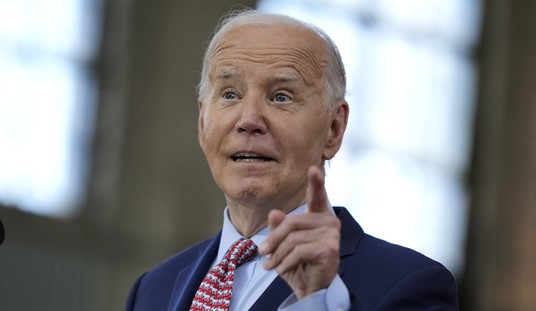The legal arguments surrounding the constitutionality of the health care debate are nuanced, and at the center of the debate is whether Congress can regulate a citizen’s inactivity. The Federalist Society holds its annual conference in Washington, D.C. this week, and that's one of the hottest topics. In an afternoon panel on Thursday, four legal scholars went head-to-head in a panel titled “Litigation: Debating the Constitutionality of the Federal Health Care Legislation.”
Four lawsuits in four different states have been launched challenging Obamacare’s constitutionality — in California, Michigan, Virginia, and Florida — according to the panel’s moderator, David Stras, of the Minnesota Supreme Court. So far, the California and Michigan cases have been thrown out. The Virginia case is pending. In Florida, twenty other states have latched on to the case, which has just survived a motion to dismiss. Which arguments the courts will address in that suit remain to be seen.
On the panel, Charles Fried of Harvard University Law School took the unpopular position that the individual mandate in Obamacare was nothing more than a regulation of commerce — a regulation of activity — and was therefore completely Constitutional. The Commerce Clause in Article 1 of the Constitution allows Congress to “regulate Commerce ...among the several States,” which has provided the basis for interstate laws that govern the purchase and sale of goods and services.
“The commerce here is health insurance, and what the individual mandate does, is prescribes along with many other rules... for the economic activity, which is health insurance,” said Fried.
The liberal professor then went on to expound his theory of limitless government power: Government has the full authority to garnish wages from its citizens in the form of taxes, he said, and the individual mandate is able to garnish wages in order to force purchase of insurance. Fried also said that the government has authority to require its citizens to buy Froot Loops, for example, though it has no authority to require its citizens to eat them. Just because the government is requiring citizens to buy health care doesn’t mean it’s requiring them to go to the doctor.
Recommended
David Rivkin, a partner at the law firm of Baker & Hostetler and outspoken political activist, said that Fried's argument was downright fruity. If there are no limits to what the government can require its citizens to buy, there is no way to say one type of purchase is more valid than the other.
“The fact that there's no meaningful, judicially enforceable doctrine here dooms what you... are defending,” said Rivkin. “Any failure to purchase something has impacts.”
Rivkin agreed with Randy Barnett, a professor of legal theory at Georgetown University Law Center, who cited the “necessary and proper” clause, as well as the "substantial effects" doctrine originally proposed by Justice Antonin Scalia.
“You realize there is a limiting doctrine on necessary and proper,” said Rivkin, and that the “line between economic and non-economic activity” has already been formulated through existing case law.
Fried insisted that in practice, the government’s powers have been virtually limitless. He cited a case where the government had required children to be vaccinated — a purchase, a service, and physical pain.
“There was a needle into the body they mandated for that,” said Fried, who insisted that the only leg conservatives have to stand on were “liberty arguments,” that "make my heart beat faster.”
Rivkin insisted that government’s power had to be limited, and that the health care bill was unprecedented. Next up, he said, was the “Happiness and Welfare Act of 2011.”

























Join the conversation as a VIP Member